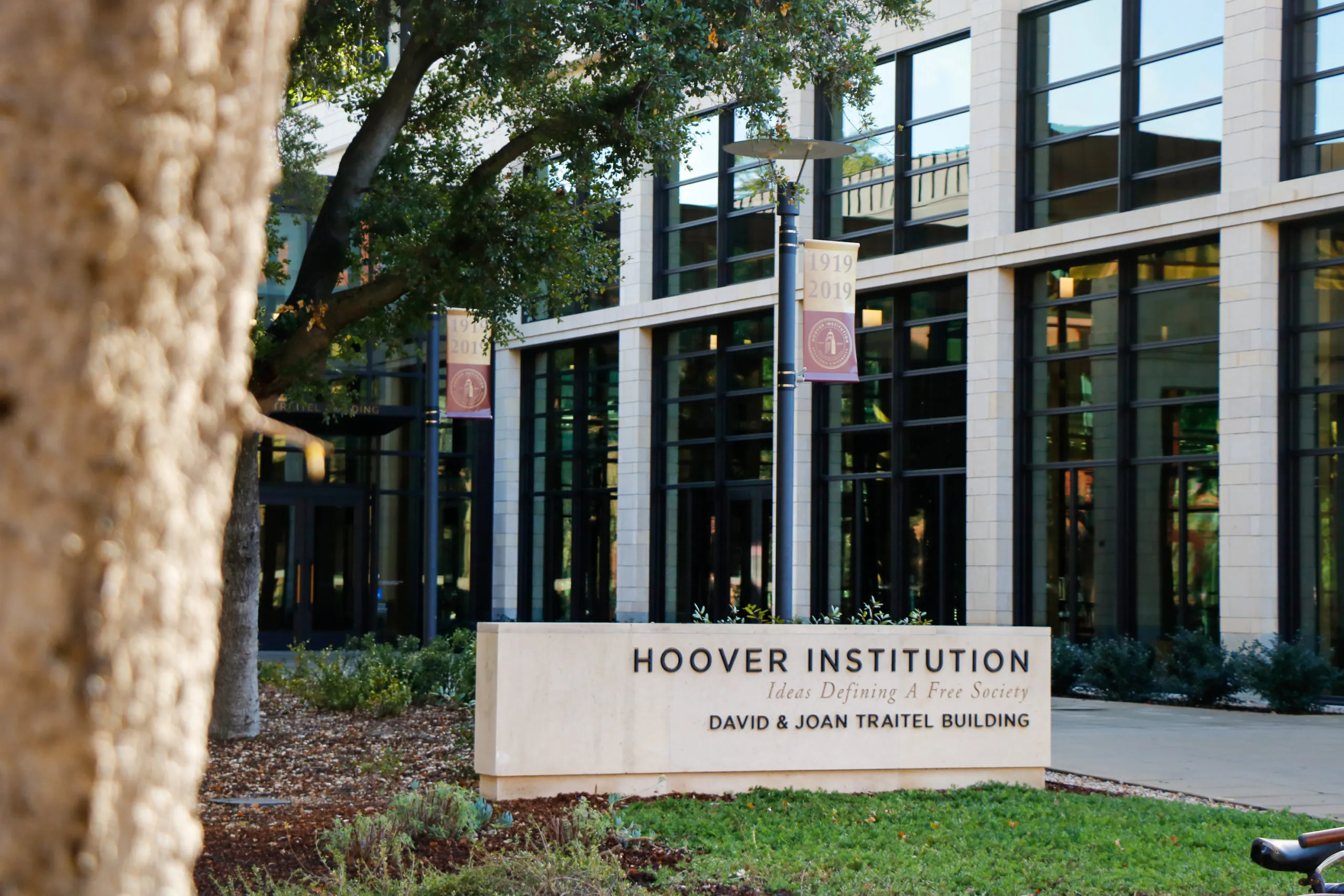Maryland governor Wes Moore and New Hampshire governor Christopher Sununu spoke with former Secretary of State Condoleezza Rice on garnering public trust in American institutions, at a Thursday event hosted by the Hoover Institution.
The governors were introduced by Brandice Canes-Wrone, the director of the newly-established Center for Revitalizing American Institutions at Hoover. Moore is the first Black governor of Maryland and third elected Black governor in the U.S., and Sununu received more votes than any candidate in New Hampshire history to become its 82nd governor.
Rice said the event was organized to address Americans’ growing distrust in political institutions.
“We understand that Americans are reportedly less confident in their institutions, losing faith in them, but they’re pretty spectacular institutions,” Rice said.
Sununu, though, expressed his own disdain for domestic political affairs.
“I am incredibly disheartened by Washington, D.C. and that’s the nicest way I’ve ever put it. I think it’s an absolute disaster,” Sununu said. “I think a lot of our citizens share that [opinion]. There’s no sense of trust, there is no sense of accountability.”
Moore said many of his constituents want a government that can deliver services efficiently.
“People just want you to see them and they want you to show up. They want you to be able to have ideas, listen to their thoughts, show a measure of concern and be able to do something about it instead of screaming about how the other side views this,” he said.
Though Moore said implementing and sustaining a bill without bipartisan partners and advocates can be very difficult, he expressed pride in the ten bills his office introduced in its first legislative session. “We had Democrat and Republican support on every single bill we introduced. And we had to work for it, but it was important,” he said.
The governors also discussed public mistrust in the judicial system. American trust in the Supreme Court is at its lowest in 50 years, with only 18% of respondents saying they “have a great deal” of trust in the institution.
Moore said the current Supreme Court is overly politicized and lacks decisions backed properly in the law. Sununu, though, said that despite his disdain for many of the Court’s judgments, he believed the justices did not benefit from politicizing their decisions.
Both governors also addressed the Israel-Gaza war following a question from an audience member about healing from high levels of hatred and fear in the U.S.
Sununu said he was shocked by levels of antisemitism. “I’ll say this to all the cultural problems. I hate wokeism. I hate cancel culture,” he said.
The solution, he said, lies in “every single one of us” having “person to person” interactions in our communities to solve this “cultural crisis.”
Acknowledging both antisemitism and Islamophobia, Moore said he has stood firm on protecting Maryland’s places of worship and prioritized educating the public on the realities of the conflict.
Speaking on political polarization, Sununu said that one of his favorite parts of the governor role was bipartisanship, particularly with other governors.
“We really all get along … I can pick up the phone to almost any governor in the country, say, ‘Hey, I saw you did this. How does that work?’ It’s an amazing sense of team, which I personally love,” he said.
Moore, who was recently inaugurated in 2023, praised Sununu for reaching across party lines to offer him help in transitioning into the role.
To encourage more collaboration across the political spectrum, both governors urged empathy — “one of the biggest things lacking in this country,” according to Sununu.
“Empathy is a skill you have to practice,” Sununu said. “In tough negotiation, when tempers get high, are we practicing saying, ‘Please tell me more?’”
This practice, Sununu said, will build trust between leaders and the community, and will ultimately be politically advantageous for politicians.
Rice said this lack of empathy in Washington has led to growing distrust between the American public and their politicians. For Moore, though, this cynicism was valid. He recalled an early memory of his dad passing away from what he described as inadequate healthcare.
“I’m never going to lose my cynicism with the system and I’m the governor,” Moore said. “But cynicism can be my companion. I just won’t let it be my captor.”
Sununu said that despite his cynicism with Congress, he still had hope for reforms through regulations on gerrymandering, campaign finance reform, term limits in D.C., more state sovereignty and other changes.
For Sununu, combating polarization must be done through education of the ideas that founding fathers set for American political institutions.
Moore said the answer to increasing political polarization is engaging in more public service. He said he felt it imperative for leaders to provide more opportunities for citizens to serve and meet others.
“You cannot claim that you love the country when you hate half of the people in it,” Moore said.
